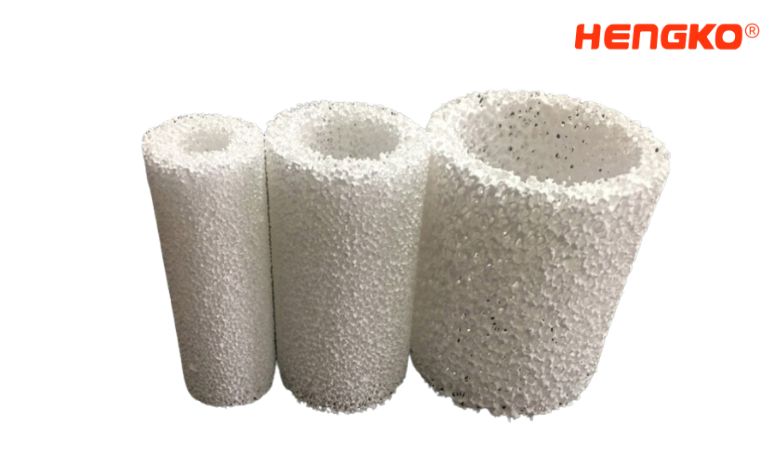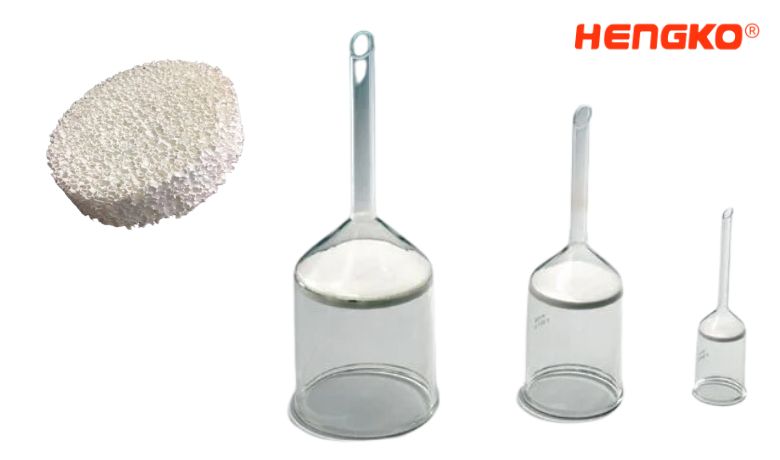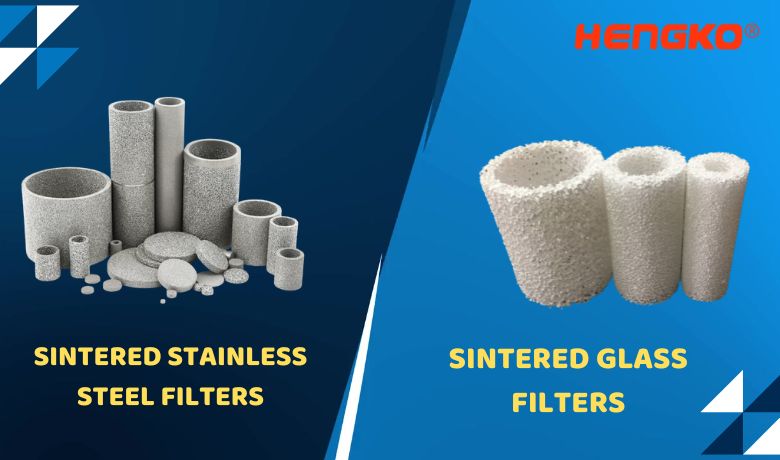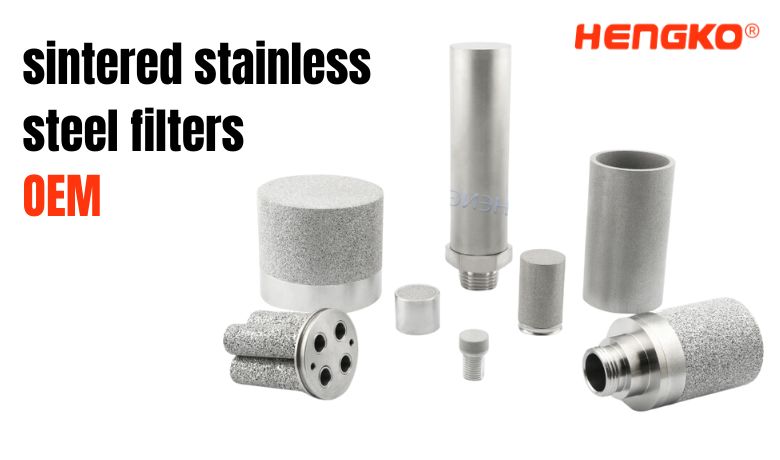Sintered Stainless Steel Filter vs Sintered Glass Filter You Like to Know
As We Know, Filtration is a critical process in various industrial applications, ranging from chemical processing
to pharmaceutical manufacturing. It involves separating solid particles from a liquid or gas mixture.
The choice of filter material is paramount in ensuring efficient and effective filtration.
Sintered stainless steel and sintered glass are two commonly used materials for filters.
Each has its unique properties, making them suitable for different applications.
This comparison aims to delve into the characteristics of these materials and help users make informed decisions
when selecting the best filter for their specific needs. let's check details now:
2. What is a Sintered Filter ?
Sintering is a process where powdered materials are heated to a temperature below their melting point.
This causes the particles to bond together, creating a porous structure.
Sintered filters are made by sintering powdered materials into a desired shape.
These filters have pores that allow fluids to pass through while trapping impurities.
Key properties of sintered filters:
*Durability:
3. Sintered Stainless Steel Filter
Material Properties:
*Excellent for high-temperature and high-pressure applications:
*Petrochemical industry:
4. Sintered Glass Filter
Material Properties:
*Chemically inert:
Performance:
*Suitable for lower temperature applications:
Applications:
*Laboratory filtration:

5. Key Differences
for some main different between Sintered Stainless Steel Filter and Sintered Glass Filter, we make this table, so you can
easy to know all details.
| Feature | Sintered Stainless Steel | Sintered Glass |
|---|---|---|
| Strength and Durability | Higher mechanical strength, suitable for high-pressure applications | More fragile, suitable for chemically aggressive environments |
| Temperature and Pressure Resistance | Handles extreme temperatures and pressures | Suitable for ambient temperature or low-pressure conditions |
| Chemical Resistance | Can resist corrosion, but may be affected by certain acids | Inert and offers superior resistance to aggressive chemicals |
| Cost | Higher upfront cost, but long-term cost savings due to durability | Lower upfront cost, but requires more frequent replacement
|
6. Which Filter Should You Choose?
Selecting the appropriate filter material depends on several factors, including:
*Industry:
The specific industry and application will dictate the necessary filtration requirements.
For example, the food and beverage industry may prioritize chemical inertness, while the petrochemical industry
may need filters that can withstand high temperatures and pressures.
*Application:
The specific application will determine the required filtration performance.
Factors such as particle size, flow rate, and fluid characteristics must be considered.
*Environment:
The operating environment, including temperature, pressure, and chemical exposure,
will influence the choice of filter material.

Additional factors to consider include:
*Cost: The initial cost of the filter and the long-term cost of maintenance and replacement should be evaluated.
*Durability: The filter should be able to withstand the operating conditions and provide a long lifespan.
*Chemical compatibility: The filter material must be compatible with the chemicals being filtered.
*Maintenance needs: The frequency and complexity of maintenance should be considered.
In general, sintered stainless steel filters are a good choice for applications requiring high strength,
durability, and resistance to harsh environments.
They are often used in industries such as petrochemical, food and beverage, and pharmaceuticals.
Sintered glass filters are well-suited for applications where chemical inertness and precise filtration are critical.
They are commonly used in laboratories, chemical processing, and applications involving corrosive chemicals.
Ultimately, the best filter material will depend on the specific needs of the application.
so when you to make a decision, It is essential to carefully evaluate the factors discussed above to make an informed decision.
7. Conclusion
In summary, sintered stainless steel filters offer exceptional durability, strength, and temperature resistance,
making them ideal for demanding industrial applications.
On the other hand, sintered glass filters provide superior chemical resistance and are perfect for precise filtration
in less mechanically stressful environments.
So When you choosing the right filter, consider the specific needs of your application, such as pressure, temperature,
and chemical exposure.
For heavy-duty industrial environments, stainless steel is the best choice, while glass is more suitable for chemical-sensitive
and precision-based filtration tasks.
For more information and personalized advice on selecting the right filter for your project or equipment,
feel free to contact us at ka@hengko.com. We're here to help you find the best filtration solutions for your needs!
Send your message to us:

